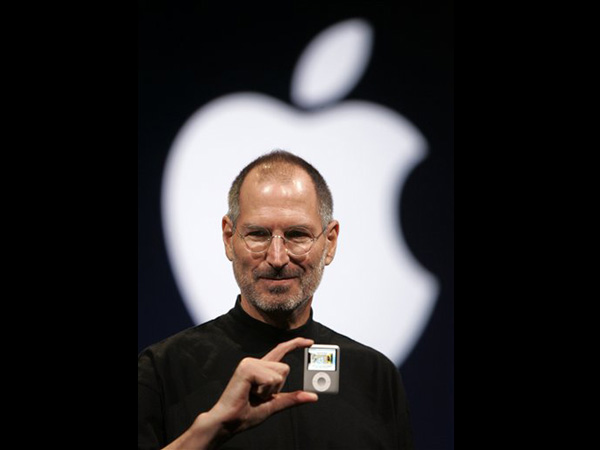WASHINGTON, United States – Five years after the death of Apple co-founder Steve Jobs, the Silicon Valley tech giant is bigger and stronger, despite lingering doubts over its future without the visionary leader.
In financial terms, Apple has been an unstoppable juggernaut: Its profit for the 2015 fiscal year was a whopping $53 billion on revenues of $234 billion — both figures doubled since the final year of Jobs’s reign before he died of pancreatic cancer on October 5, 2011.
Apple’s market value is more than $600 billion, below its 2015 highs but more than twice its level of 2011 and holding above Google parent Alphabet as the world’s most valuable corporation.
Still, some analysts question whether Apple — which redefined the smartphone experience with its trend-setting iPhone introduced in 2007 and created a vast ecosystem of mobile applications — is losing momentum.
“It’s really hard to keep up the innovation cycle when you have developed a successful product,” said technology analyst Jack Gold of J. Gold Associates.
“With each successful generation (of a product) it becomes harder. The question becomes, ‘What’s the next big thing?’ and it’s not clear what that is going to be.”
Vivek Wadhwa, a Carnegie Mellon University professor and former Silicon Valley entrepreneur, was more blunt, saying Apple is living off its earlier innovations with little new to offer.
“We have seen no major innovations for Apple” since the Steve Jobs era, Wadhwa told AFP.
With the latest iPhone 7, Wadhwa said, “they market it well but it’s the same device all over again.”
Competing with Tesla?
Apple has moved into new services such as streaming music and mobile payments, and is believed to be working on virtual reality and autonomous driving technology. But the bulk of its revenue and profits still come from the iPhone.
“They haven’t figured out what they want to deliver,” Wadhwa said.
“If they wanted an Apple car it should have been out there now to compete with Tesla.”
Jobs’s successor Tim Cook has won plaudits for his performance keeping Apple on a steady path, even though no one sees him as the same kind of leader.
“Tim Cook is an operations guy, he is great in getting the supply chain to churn out things,” said Jan Dawson of Jackdaw Research.
“He knows his limitations. He knows he is not the most charismatic presenter. He knows he is not Steve Jobs.”
Still, Dawson sees Cook as broadly successful in keeping Apple on track. He noted that Apple has doubled its spending on research and development since Cook took over.
“They stick to a certain price point and a premium experience, and that hasn’t changed from Steve Jobs to Tim Cook,” Dawson said.
Apple has succeeded not by being first in a market segment but by improving and perfecting certain products.
“They weren’t the first to make an MP3 player or smartphone or tablet,” Dawson said. “Apple bides its time and when it can make a significant contribution to a category it comes in and improves the experience. That was true in the Steve Jobs era as well.”
Dawson said it is not clear if Apple would be in a different place if Jobs were alive today, with the smartphone market largely saturated and touch competition from rivals.
“People look at the iPhone and say nothing else has lived up to that, but there aren’t any other technology categories like that,” he said.
Wadhwa argued however that Cook has had chances to “reinvent” the company and has failed to do so.
“He’s basically an operations guy who is living in the past,” Wadhwa said.
Wadhwa posited that Apple, with its vast cash reserves, could buy Tesla and put its highly regarded chief Elon Musk in charge of the company.
“You need a crazy visionary leading the company,” he said.
“People have shown a lot of patience because we all love Apple. And I love Apple. So it’s not too late to save the company.”
RELATED STORIES
Steve Jobs: The ultimate communicator
Steve Jobs: A genius but a bad, mean manager
